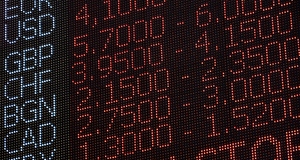Tracing the Success of Soft Power in the US State Department's Future Leaders Exchange Program
By
2017, Vol. 9 No. 10 | pg. 1/1
IN THIS ARTICLE
The United States government started exploring the soft power potential of student and scholar exchange programs as early as 1908, with the establishment of the Boxer Indemnity Scholarship Program.1 The father of the theory of soft power, Joseph Nye, was not even born when Edmund James, then president of the University of Illinois, outlined precisely the soft power benefits of the student exchange in his letter to president Franklin D. Roosevelt. James wrote, “The nation which succeeds in educating the young Chinese of the present generation will be the nation which, for a given expenditure of effort, will reap the largest possible returns in moral, intellectual and commercial influence.”2 Fifty years after James’ letter was written, the Bureau of Educational and Cultural Affairs (ECA) was established; the organization today operates an entire industry of the US Federal Government sponsored student and scholar exchange programs. The truly industrial scale of ECA activity is reflected in impressive numbers: in 2013 the number of foreign participants of the programs reached 9 million people, 565 alumni of the ECA programs are current or former heads of state and government, and 31 alumni are heads of international organizations.3 And while the official mission statement of the bureau stresses promotion of mutual understanding and the development of peaceful relations, if we look at the statistics of the ECA activity against the global influence of the United States, it is clear that the real mission of the agency today still rests on the assumption outlined by James back in 1908: youth exchange is a key to the continued exercise of American influence abroad. The ECA has historically run programs around the world, and the collapse of the Soviet Union offered the chance for a greater expansion of the agencies’ work and accordingly, American soft power influence. The US Senator from New Jersey, Bill Bradley, was quick to see the opportunity and in May of 1992 introduced the so-called Freedom Exchange Act, in which he proposed the establishment of an educational program with the now independent states of the Former Soviet Union (FSU).4 The same year the ECA announced the start of the recruitment process for its first high school exchange program in the twelve countries of the FSU. The program was named Future Leaders Exchange (FLEX) and gave successful applicants an opportunity to spend one fully funded academic year in the United States, living with a volunteer host family and attending an American high school. A rather unique experiment at the time, the FLEX program proved to be a tremendous success and year 2017 marks the twenty-fifth anniversary of its existence.5Some might argue that the success of the program is questionable due to the fact that the operation of FLEX was suspended at first by the government of Uzbekistan, then Belarus, and, finally, in 2014 by Russia, the country that had the largest number of FLEX alumni at the time.6 The central aim of the paper at hand, therefore, is to show that the withdrawal of the above-mentioned countries from the program is a demonstration of the program’s successful ability to, as Joseph Nye would put it, “win hearts and minds” of the young people.7 An entire generation of FLEX-influenced young leaders has the capacity to make an impact on their home country’s civil society, and the existence of an active civil society is a threat to the “stability” of the current regimes in those countries. The research at hand attempts to develop a more thorough understanding of FLEX as a public diplomacy practice by providing an answer to the question of why the program has been successful in promoting US democracy and active citizenship in the countries of the Former Soviet Union. Literature ReviewA significant amount of the existing public diplomacy research focuses on what kind of soft power enhancement opportunities are offered to countries via the internationalization of its higher education. The objectives of the cultural and student exchange programs similar to FLEX, however, largely differ from those attributed to educational soft power in its traditional sense. The soft power of exchange programs exists somewhere at the crossroads of educational, cultural and non-state public diplomacy; it allows a state to utilize all three sources of its soft power- culture, values, and policies- at once. Therefore, the multidimensional soft power of student and scholar exchange programs creates space for a new, largely unique area of public diplomacy research. Only a handful of the existing research material is aimed at exploring if and how the exchange programs allow for diffusion of host state’s values in a participant’s home state and subsequent enhancement of its soft power abroad. One of the most significant contributions to this research area was made by Carol Atkinson in her article titled Does Soft Power Matter? A Comparative Analysis of Student Exchange Programs 1980–2006. Atkinson’s work is of particular importance for the research at hand as it proves the hypothesis of US-hosted exchange programs being able to serve as catalysts of the diffusion of liberal values and practices across the borders of authoritarian states.8 In her research Atkinson looks at the broad variety of exchange programs and offers, as she labels it, a “systematic empirical examination” of their success. Some existing literature, however, examines success of the exchange industry through concrete examples. The work that is of particular importance for the research at hand is Yale Richmond’s Cultural Exchange and the Cold War: Raising the Iron Curtain. Published in 2003, Richmond’s book examines how American soft power in the context of the student and scholar exchanges between the USSR and the US contributed to the collapse of the Soviet Union. Richmond utilizes a great number of primary and secondary sources in the research, including his personal accounts and interviews with the participants from both sides of the Wall. Well-acclaimed by critics and praised for its unique outlook on the topic of East-West confrontation, the book, however, doesn’t provide more than a brief hypothesis on the state of the cultural exchange after the end of the Cold War.9 10 The paper at hand, therefore, serves as an attempt to offer an extension to Richmond’s pioneering research. MethodologyA number of primary and secondary sources was utilized in the research: brochures, newsletters and newspapers accessible to the public and those available exclusively to the members of FLEX alumni community: blogs of FLEX alumni and current participants, publicly available interviews and commentaries received during the authors’ conversations with the members of FLEX community. In addition, the research at hand is enriched by the account of the author’s personal experience as a FLEX program participant and an active member of the FLEX alumni community. Targets and Targeting StrategiesIn order to find the roots of the FLEX program’s soft power success it is necessary first to create a clear picture of the program’s targets. FLEX eligibility requirements vary slightly from country to country depending on the secondary education system differences. Generally, however, the participant must be in their eighth, ninth or tenth year of schooling, between 14 -18 years old, be a citizen of one of the participating states, and not have lived in the US for three or more months in the last five years.11 It is important to note that FLEX welcomes the participation of students with disabilities. However, those students are subject to a different selection process and their experiences in the United States differ largely from those of the majority of participants, and for that reason will not be examined in the paper at hand. It is worth mentioning, however, that many FLEX alumni with disabilities state that in the US they “finally had a chance to feel normal.”12 Indeed, most former Soviet states struggle with integration of people with disabilities into society; many are unable to attend public schools and are deprived of opportunities to interact with their peers, which is not the case in the United States. Many FLEX alumni with disabilities therefore actively engage in social work and projects aimed at helping people with disabilities upon their return from the US. Perhaps, promotion of social inclusion abroad is in this case could be seen as yet another success of the US foreign policy agenda. Another two eligibility requirements are related to student’s academic achievements: “have grades of good or better” and “[are] able to speak English well.”13 The latter requirement is of particular interest to this research, first in its relation to the number one step of FLEX application process, after which less than 50% of initial number of applicants remain in the competition. This step is a very short and a rather simple “test of English.” Personal observations of the author and her conversations with several English language teachers whose students participated in FLEX testing suggest, however, that many candidates with exceptionally strong English language abilities don’t pass those tests, while others, whose language abilities could be rated as “average” make it to the second round. That enables us to conclude that perhaps the test does not solely test students’ English abilities, but additionally serves to identify a certain psychological type of human being that would fit FLEX criteria. The following two rounds of FLEX are a “pure psychology,” with the second involving two personality essays.14 Again, less than 50% of participants have a chance to continue their fight for the American dream. Then come two more essays, a lengthy application form and a letter to a host family in round three. In addition, there is one round of in-person interviews and several group discussions and games, which are videotaped in order to be examined by the election committee specialists later on. Applicants are also required to complete a two-hour English language proficiency test. What qualities do the “survivors” of this lengthy and stressful application process share? They all are indeed people capable of working under pressure and they are absolutely fearless. There are countless number of FLEX alumni who openly admit that somewhere in round two they completely forgot a certain phrase in English and some say that they decided to insert a drawing instead and others simply wrote it in their mother tongue and, arguably, it was that “boldness” that allowed them to embark on the American journey.15 They all have their passion in life and that passion makes them noticeable individuals whether they are performing team building activities with their peers or trying to express themselves on a piece of paper. They have excellent communication abilities, and a strong incentive to come back and contribute to their home community, whether through strong connections to their family or friends, or a renewed feeling of patriotism. It is evident that the rigorous selection process allows the ECA to choose individuals who already have a large potential to succeed in their home communities for participation in the FLEX program. Now it is important to examine what exactly the agency does in order to not simply utilize that potential but utilize it in a way that in the long run would support the interests of the United States. Modus OperandiFLEX has a total of five official program goals, and every participant’s “American experience” is carefully structured around them. The goals are as follows:
It is important to note that none of these goals focus on schooling. FLEX students are not expected to take the most from the American secondary education system, and perhaps pave their way to attending an American university and then contributing to the American economy and to their home countries’ “brain drain” numbers. On the contrary, participants are expected to center their year around social activities and human interactions and then necessarily come back to their home countries and share their experiences. So how does this scheme look in action? Each FLEX student is required to serve a certain number of community service hours. Because the majority of the students live in smaller American towns, community service allows them to meet many people and develop stronger ties to their host community as a whole. Moreover, in most of the participants’ home states interest and levels of engagement in volunteering activities are rather low, therefore, for many FLEXers volunteering in the US is a truly life-changing, transformative experience. “It was during my American year that I became interested in social change, and was introduced to the idea of volunteering,” says FLEX’04 alumna Lana Chkhartishvili.17 FLEX alumnus Aziz from Kazakhstan describes the impact of volunteer activities in the US as follows:
One of the most impressive FLEX stories, however, is the story of FLEX 2009 alumna from Russia, Anna Safronova. Anna is a founder of the global Dream FUNding initiative and the My Dream City International movement, which have a mission “to promote education for orphans and neglected children around the world, help them to become self-sufficient and secure their successful transition into adulthood.”19 Behind the initiative, which now operates in several countries of the FSU and even Nigeria, thanks to FLEX alumni community, is a story of meeting an orphaned elementary school student during her exchange year in the US. “Despite not having natural parents he led a completely normal life, went to a regular school and had many friends. The contrast between his life and those led by Russian orphans seemed so striking that I decided to do something about it when I returned,” says Anna.20 It is important to note, that FLEX alumni have an opportunity to receive grants for group or individual projects aimed at promoting community involvement, US values or sharing their skills and experiences acquired in the United States.21 The examples of projects include the School of Local Leaders in Moldova, Inclusive Summer Camp in Armenia, and the Extension of Water Pipe in Selkhoztekhniva Micro Region (Tajikistan), which was praised by the U.S. Ambassador to Tajikistan Susan Elliot and the mayor of Khorough.22 While the exact correlation between democratization and volunteering is a subject to debate, such correlation undoubtedly exists and, therefore, it is reasonable for us to conclude that engaging the exchange students in volunteering is not only the way of establishing stronger ties with their host community, but a way to teach them what it means to be an active citizen. Active citizenship as such is a building block for every democratic society and evidently one of the core of the so-called American values. Volunteers helping elderly people and orphans are, however, highly unlikely to threaten Belorussian or Russian political regimes, though young political activists indeed can. During the year in the US every FLEX student has an opportunity to tour the capital of their state and meet with the state governor to learn more about the local system of governance and share their experiences as an exchange student. FLEX participants interested in politics and governance have an opportunity to apply and be selected to participate in a so-called Civic Education Workshop in Washington, DC, which allows the “participants learn firsthand about the U.S. federal system of government and other important concepts through seminar discussions, briefings, and meetings on Capitol Hill.”23 For most of FLEX participants the mere idea of being able to meet a federal government official is rather foreign, and it is evident that after their experience in the US many start questioning why their home government doesn't work in the same way. Here is the reflection of FLEX’12 alumna Olena from Ukraine:
The Ukrainian FLEX Alumni community as a whole could arguably serve as a living example of how an American soft power influence translates into hard politics. Many members of the community were actively engaged in the events linked to the Ukrainian revolution, and some of them hold important positions under the current government. Andriy Shevchenko, FLEX’94 alumnus, prominent Ukrainian journalist, former parliamentarian and a member of the so-called “Tymoshenko Block,” in 2015 was appointed a Ukrainian ambassador to Canada.25 FLEX’04 alumna Halyna Yanchenko was appointed an anti-corruption deputy of the Kiev City Council after the 2014 Maidan Revolution.26 While Shevchenko and Yanchenko are only two out of many members of the Ukrainian FLEX alumni who built incredibly successful careers in their home countries, the fact that their career success wouldn’t be possible without the 2014 Ukrainian Revolution and acquisition of power by the pro-western government creates a linkage valuable for this analysis. Moreover, it is highly unlikely that Russia’s suspension of FLEX right after the 2014 Ukrainian events was simply a matter of coincidence. After all, the chief editor of the Kremlin’s media weapon, RT, Margarita Simonyan is 1994 FLEX alumna, which means that the Russian government is not oblivious to how powerful the exchange program might be when it comes to educating and shaping the ideas of young leaders about the ways and means of operating a true democratic society. Conclusions and Further ResearchAs noted by Nye, the political values of a country become its soft power resource “when it lives up to them at home and abroad.”27 The examples above demonstrate that FLEX program participants during their exchange year have an opportunity to experience the US democracy at work in the domestic sense, which in turn allies with country’s international “democracy promoter” image. The very eventful American year is followed by the familiarity and boringness of home and a so-called state of a reverse culture shock, which perpetuates a more active engagement with the alumni community and often engagement in volunteer activities at home. Some alumni develop small community projects into large movements, some embark on creating US-inspired business start ups, others, however, decide to pursue the path of making their country’s political life better and more democratic. The research at hand presented only several examples of how the American exchange experience of FLEX participants translates into an attempt to promote active citizenship and democratic values in their home countries. The examples, however, help to provide a clear answer to the initial question of the research: why has the Future Leaders Exchange Program been successful in promoting US democracy and active citizenship policy in the countries of the Former Soviet Union? First of all, the FLEX participant-selection process allows the program to choose and invest in a very particular group of individuals. The targets are young people who are not only very likely to internalize the ideas of freedom and democracy, but who also have a will and capability to share and enact their ideas in home communities. Secondly, the exchange year of the participants is carefully structured in a way that allows exposure to the best aspects of America’s democratic system. Thirdly, upon their return to their home country, alumni become a part of a larger network of like-minded individuals, which allows for more opportunities for knowledge diffusion and active cooperation. While the evidence used in the research at hand has proven to be effective in answering the original question, further empirical research is needed to support the theory of cultural programs being an effective soft power and policy diffusion tool. For example, figures measuring the number of FLEX alumni getting involved in home state politics, how many FLEX alumni leave their home state (and hence don’t have an impact on the home country and community), how many FLEX alumni work in the sphere of US-FSU diplomacy etc., would allow us to provide more evidence for, or completely dismantle, the theory at hand. Endnotes1.) Scott-Smith, Giles. "Still Exchanging? The History, Relevance, and Effect of International Exchange Programs." E-International Relations. September 14, 2012. Accessed April 17, 2017. http://www.e-ir.info/2012/09/14/still-exchanging-the-history-relevance-and-effect-of-international-exchange-programs/#_edn1. 2.) Edmund James, “Memorandum Concerning the Sending of An Educational Commission to China,” University of Illinois Archives. https://archives.library.illinois.edu/erec/University%20Archives/0205013/Volume%202/james_on_china_march_3_1905.pdf 3.) "Facts and Figures." U.S. Department of State Bureau of Educational and Cultural Affairs. Accessed April 17, 2017. https://eca.state.gov/impact/facts-and-figures. 4.) S. 2777 — 102nd Congress: Freedom Exchange Act.” www.GovTrack.us. 1992. April 17, 2017 5.) American Councils for International Education ACTR/ACCELS. “Civic Education Week 2013, FLEX 20.” Future Leaders EXpress Special Edition 6.) Bryntseva, Galina. “A uchilsya li mal'chik?” Rossiyskaya gazeta – Federal'nyi vypusk №6498 (226) https://rg.ru/2014/10/02/programma.html 7.) Nye, Joseph S. "Public Diplomacy and Soft Power."The Annals of the American Academy of Political and Social Science616 (2008): 94-109. http://www.jstor.org/stable/25097996. 8.) Atkinson, Carol. "Does Soft Power Matter? A Comparative Analysis of Student Exchange Programs 1980-2006." Foreign Policy Analysis 6, no. 1 (2010): 1-22. doi:10.1111/j.1743-8594.2009.00099.x. 9.) Wood Aucoin, Amanda. “The review of the Cultural Exchange and the Cold War: Raising the Iron Curtain by Yale Richmond.” Russian Review 63, no. 4 (2004): 719-720 10.) Nelson, Keith L. “The Review of Cultural Exchange & the Cold War: Raising the Iron Curtain. By Yale Richmond.” The Journal of American History 12 (2004): 1079-1080 11.) "Future Leaders Exchange Program (FLEX)." American Councils for International Education Kyrgyzstan. Accessed April 18, 2017. http://americancouncils.kg/programs/flex/. 12.) From personal conversations with FLEX’10 alumna 13.) "Future Leaders Exchange Program (FLEX)." American Councils for International Education Kyrgyzstan. Accessed April 18, 2017. http://americancouncils.kg/programs/flex/. 14.) "Temy dlya esse, kotorye vstrechalis' flekseram poslednie neskol'ko let. Vtoroi i tretii tur." FLEX prgramma obmena - Besplatnoe obuchenie v SSHA. Accessed April 18, 2017. http://flex-exchange.ru/index/topics_esse/0-28. 15.) From conversations with members of the Bashkortostan regional FLEX Alumni community 16.) "FLEX Program." American Councils for International Education Armenia. Accessed April 19, 2017. http://americancouncils.am/future-leaders-exchange/. 17.) "Lana Chkhartishvili '04 Bringing Change to Legal Education in Georgia." The Bradley Herald. May 26, 2015. Accessed April 19, 2017. http://www.bradleyherald.org/2015/05/05/lana-chkhartishvili-04-bringing-change-to-legal-education-in-georgia/. 18.) American Councils for International Education ACTR/ACCELS, Future Leaders Ledger Special Edition (2012): 6 19.) "About us." MDC international. Accessed April 19, 2017. http://dreamfunding.org/about-us/. 20.) "Anna Safronova '09 My Dream City Movement." The Bradley Herald. May 27, 2015. Accessed April 19, 2017. http://www.bradleyherald.org/2015/05/26/anna-safronova-09-my-dream-city-movement/. 21.) "Announcing 2016-2017 FLEX Alumni Grants Program." The Bradley Herald. March 08, 2016. Accessed April 19, 2017. http://www.bradleyherald.org/2015/12/14/flex-grants-2016/. 22.) "Extension of Water Pipe in Selkhoztekhniva Micro Region." The Bradley Herald. October 02, 2013. Accessed April 19, 2017. http://www.bradleyherald.org/2013/10/02/extension-of-water-pipe-in-selkhoztekhniva-micro-region/. 23.) "Workshop Opportunities." Discoverflex. Accessed April 19, 2017. http://discoverflex.org/news-and-events/workshop-opportunities/. 24.) American Councils for International Education ACTR/ACCELS. “A Capitol Celebration” Future Leaders Express 1, no. 1 (2012): 6 25.) FLEX Alumni Program Facebook Page, accessed April 19, 2017, https://www.facebook.com/flexalumni/ 26.) "Halyna Yanchenko '04 Anticorruption Deputy at Kyiv City Council." The Bradley Herald. April 29, 2015. Accessed April 19, 2017. http://www.bradleyherald.org/2015/04/29/halyna-yanchenko-04-anticorruption-deputy-at-kyiv-city-council/. 27.) Nye, Joseph S. "Public Diplomacy and Soft Power." The Annals of the American Academy of Political and Social Science 616 (2008): 94-109. http://www.jstor.org/stable/25097996. Suggested Reading from Inquiries Journal
Inquiries Journal provides undergraduate and graduate students around the world a platform for the wide dissemination of academic work over a range of core disciplines. Representing the work of students from hundreds of institutions around the globe, Inquiries Journal's large database of academic articles is completely free. Learn more | Blog | Submit Latest in Political Science |


















